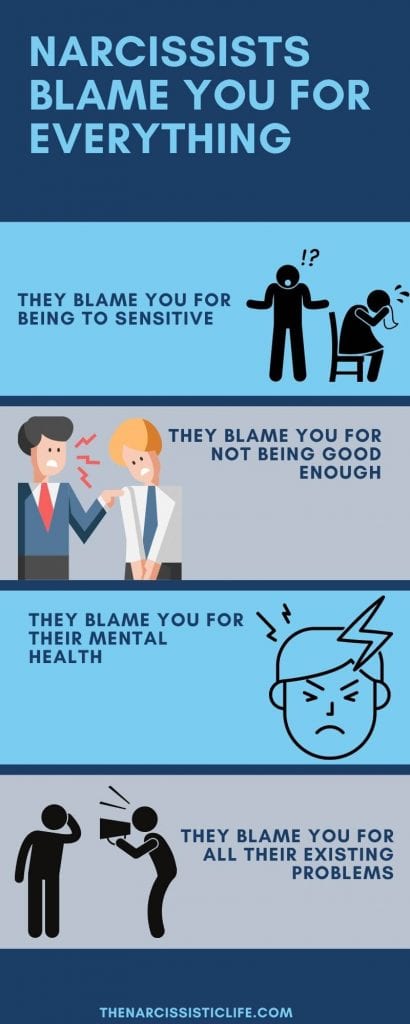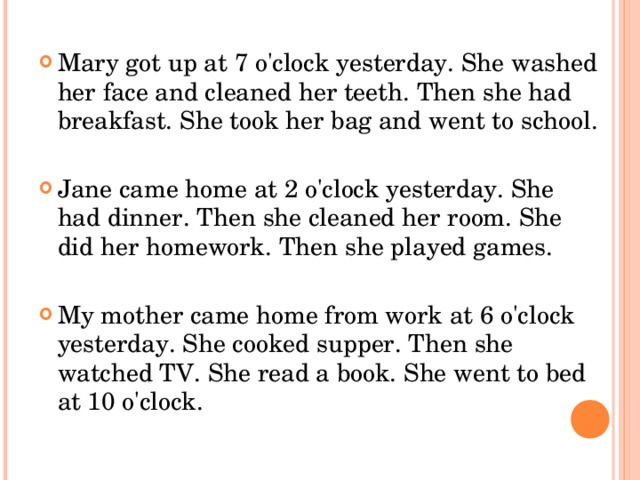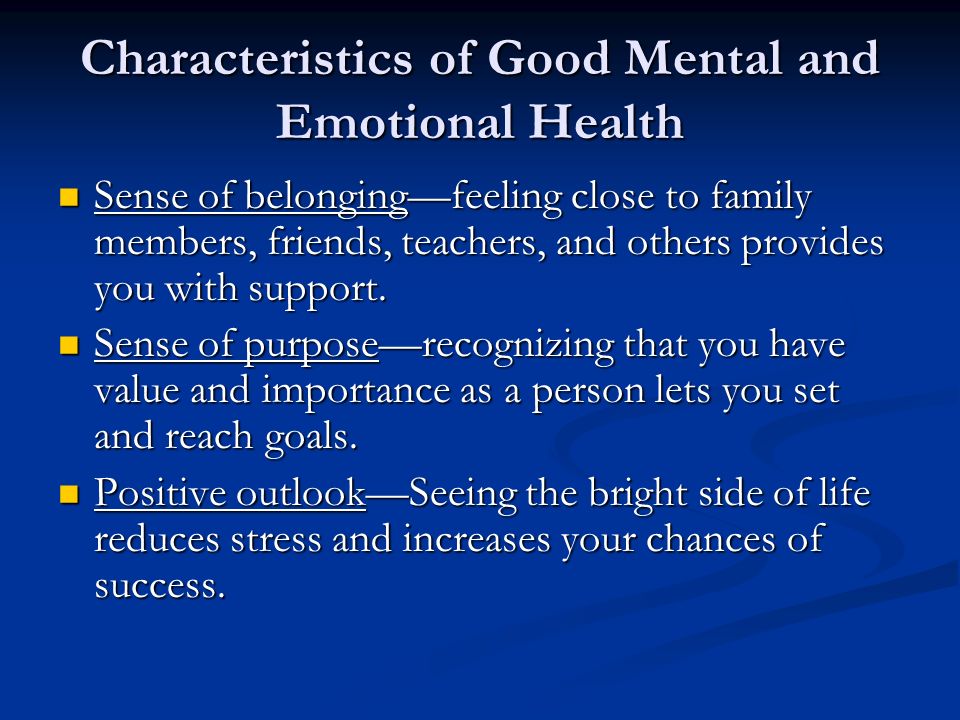Why do i resent my husband
Dealing With Resentment in Your Marriage
One of the most difficult issues to face in your marriage is the realization that one of you resents the other. This can be a devastating revelation, but it doesn’t mean you can’t overcome these intimacy-killing emotions.
Resentment tends to arise in marriage when one spouse is either knowingly or unknowingly taking advantage of the other–or taking the other for granted. Habitual poor behaviors or unhealthy patterns feed resentment. Some common issues that cause resentment between spouses include:
- Habitual selfish behaviors
- Being “married” to a job
- Favoring one of your children over the other(s)
- Spending too much time with one side of the family
- Not being fully present at home or with the kids
- Expecting too much out of your spouse (or vice versa)
- Not carrying your weight at home or stepping up to responsibility
- Failing to celebrate your spouse on holidays or special occasions
One or both spouses can contribute to this environment in a marriage; it’s important to pinpoint what’s happening, address it, and work together to find a solution. The good news is that it is possible to set things right and overcome the hard feelings between you.
Today, we’re sharing a few tips for how to tackle and deal with feelings of resentment–whether it’s resentment toward your spouse, or your spouse’s resentment toward you.
If you resent your spouse…
If you’re resentful of your spouse, chances are, you’ve been holding in some unpleasant feelings for a long time. The issue could be as simple as your spouse neglecting to take out the trash every day; on the other hand, it could be a more complicated issue like him or her spending all their free time with your in-laws.
First, write down everything you’re feeling. Writing can help you gain clarity in an upsetting situation, and it can help you drill down and pinpoint what’s going on inside you that’s causing you to feel such intense resentment. Most likely, you’re feeling the pile-on of many events over a long period of time–maybe even over the span of your entire marriage.
Through your writing, do some serious self-reflection to become more aware of the root of the problem. Is it something that happened in the past that you’ve been carrying around all these years? Is it a theme or pattern that has never resolved itself?
Next, explore whether there’s some positive perspective you can take from what you’re dealing with. Are you holding onto unrealistic expectations you can lower or let go of? Is there an alternative viewpoint you can take once you’ve pinpointed the source of your resentment? We know that while there are situations that don’t warrant simply taking a positive point of view, asking that question of yourself can be helpful as you move toward a solution. Remember, though, that positive perspective doesn’t give your spouse license to continue in their unhealthy patterns. You’ll still need to address the issue head-on.
The most difficult step in this process is approaching your spouse with the problem. Keep in mind that right now, your spouse isn’t feeling any pain. Whatever behaviors or patterns are creating this resentment in you, as long as they’re allowed to continue, you’ll be the one feeling all the pain. And nothing is going to change until you let your spouse know how you feel.
Whatever behaviors or patterns are creating this resentment in you, as long as they’re allowed to continue, you’ll be the one feeling all the pain. And nothing is going to change until you let your spouse know how you feel.
There are multiple ways to go about solving a resentment issue. You may be able to offer your spouse a positive solution or compromise that works for you both; for example, if your spouse wants to use vacation time to spend with his family, ask that he reserve a portion of that time for you. You might choose to set boundaries instead; for example, if your spouse is a workaholic, ask her not to answer the phone during dinner or date nights.
It’s important to note that you won’t experience a truly positive change if you make unreasonable demands. Can you meet in the middle to make things work more smoothly? Think about small adjustments your spouse can make to his or her habits that would make a big difference in your life.
If your spouse resents you…
When your spouse feels resentment toward you, you might not notice it in the beginning. But sooner or later, it’s going to become noticeable…and uncomfortable. While it’s easy to blame your spouse’s shifting attitude on them, what you may be perceiving could actually be a building resentment toward a habit or behavior you’re displaying.
But sooner or later, it’s going to become noticeable…and uncomfortable. While it’s easy to blame your spouse’s shifting attitude on them, what you may be perceiving could actually be a building resentment toward a habit or behavior you’re displaying.
If you think your spouse might resent you for some reason, try to dig deep as to why. You might not be able to pinpoint it right away–or even on your own. Sometimes it takes another perspective to be able to see your own flaws.
Approach your spouse with vulnerability and care, and ask them if there’s something you’re doing that is bothering them or if you’ve done something hurtful. It may be difficult for you to hear their answer, but be receptive to their answers. Don’t let yourself become defensive. Instead, listen to what your spouse has to say and echo it back to show your understanding.
Once you know what’s triggering your spouse’s resentment toward you, it’s time to act. Because you’re taking on an emotional burden your spouse has been carrying for a long time, it’s going to be painful. Change is difficult, but we promise you the results will be worth the effort.
Change is difficult, but we promise you the results will be worth the effort.
Have you and your spouse overcome resentment in your marriage? Share how you did it in the comments section below.
How To Fix Toxic Resentment In Marriage: 7 Practical Steps
When left unchecked, resentment in marriage is fatal. It destroys the love and leaves you feeling bitter and angry towards your partner.
But the surprising thing about resentment is that when approached correctly, it can actually be an unexpected gift.
In fact, knowing how to overcome resentment in our marriage has helped us to address important relationship issues and create an even stronger marriage – and a better sex life.
In this blog you’ll learn exactly how to deal with resentment in your marriage, including:
- What causes resentment in a marriage, and the toxic signs to watch out for
- What to do when you feel resentment towards your spouse
- What to do when your spouse resents you
- A proven action plan for how to overcome resentment in your marriage
- And how to turn resentment into a force for growth and fulfilment
Whether you’re the one feeling resentment towards your partner, or you think that your partner holds resentment towards you, this is the complete guide for healing resentment in your marriage.
What Is Resentment In Marriage?
Resentment in marriage is the buildup of negative feelings towards your partner when you feel wronged, betrayed, neglected, poorly treated, or taken for granted. Resentment is toxic to a relationship and over time will erode the safety, connection, and good will necessary for a successful marriage.
Resentment towards your spouse basically comes down to this:
Your partner has knowingly or unknowingly broken the agreements of your relationship. And that hurts.
Whether it’s how you want to be treated, what you thought your marriage would look like, or the life you thought you were building together, the disappointment, anger, and frustration of these unmet expectations can be devastating.
What Causes Resentment In Marriage?
The causes of resentment in marriage are many and varied, but common causes include:
- Feeling like you contribute more to the relationship than your partner
- A long-term lack of emotional intimacy and connection
- Feeling unimportant or that you’re not a priority to your partner
- An unfulfilling sex life
- Toxic communication or unresolved arguments
- Feeling unappreciated or like your partner doesn’t really ‘see’ you
- Selfish or controlling behaviour
- Intense criticism or demeaning comments from your partner
Resentments often start small:
A careless remark, a forgotten commitment, a lack of appreciation.
But if these small hurts are not resolved effectively, they intensify over time. One minor incident builds upon another until you’re carrying around a heart full of past grievances.
What Are The Signs Of Resentment In Marriage?
Resentment in marriage can look like:
- Obsessive thoughts about past hurts
- Criticism, negative judgements, and ‘thinking the worst’ of your partner
- A constant feeling of tension or walking on eggshells
- Stonewalling, defensiveness, and emotional withholding
- Not feeling safe and finding it difficult to trust
- Fantasizing about leaving the relationship
- Actively attempting to hurt your partner’s feelings
- A sense of feeling let down or betrayed by your partner
- Chronic arguments and an inability to collaborate effectively
- Consistent fault finding
- Fearing vulnerability and not feeling safe to open up to each other
- A lack of plutonic touch and everyday affection
- Experiencing sexual rejection and feeling unwanted
Does Resentment Lead To Divorce?
If left unaddressed, resentment can erode a marriage to the point where divorce seems like the only option.
Resentment undermines the positives making it difficult to deal with problems in a constructive way. It can make staying together feel hopeless and often pushes one partner – or both – towards leaving.
But a marriage can recover from resentment:
It takes shared responsibility, a willingness to talk openly, and a dedication to doing the healing work. You have to understand the hurts in your relationship, be able to talk them through together, and then commit to meeting each other’s needs.
Think of it like this:
Imagine that in your relationship there’s a glass window between you and your partner.
For connection to flow easily, the window needs to be clean and clear.
But when some small hurt happens between you, it’s like a dark stain on the window. One or two aren’t a problem as you can still see each other clearly. But a build up of unresolved issues creates a wall so that you no longer feel close or connected.
Overcoming resentment in your marriage is the process of ‘cleaning the relationship window’, allowing you to come back together and build a more fulfilling marriage.
How To Overcome Anger And Resentment In Your Marriage
The next section guides you through a process to understand the hurts you’re feeling, uncover the valid needs underneath them, and help you communicate those needs in a way that will help you get them met.
And, parts of this process will be difficult.
Resentment can be challenging as it colors your perception and creates harmful narratives about your relationship and your partner that aren’t always accurate. (We call them ‘poo goggles’ – the opposite of rose-colored glasses).
To overcome anger and resentment in your marriage you have to be willing to question these assumptions and consider different perspectives.
Keep an open mind, and trust that this process has the power to transform even the toughest of resentments – if you’re willing to try.
What Do You Do When Your Spouse Resents You?
If your partner holds resentment towards you then you’ll want to open up a conversation where the two of you can go through these steps together.
If you’re not sure how to do that, try initiating a relationship check in.
Or you could send them this article and let them know that you want to work through the resentments in your marriage, whether that’s by yourselves or with the guidance of a relationship coach or a marriage therapist.
1. Look For The Positives
Ready to put that open mind into practice? List all of the things that are awesome about your partner and your relationship.
Let’s be clear that this is not an attempt to gaslight or be all ‘toxic positivity’*.
These positive attributes aren’t going to magic away the negatives or instantly fix your resentment.
But before we dive into the more challenging aspects of healing resentment in marriage, start by remembering what’s great about your spouse, and why you’ve chosen to be in a relationship with them.
Challenge yourself to write down at least 20 things. This is your ‘why?’ for getting over resentment in your marriage.
2. Understanding Hurts & Complaints
Now list the ‘negatives’ and the things you’re feeling resentful about:
- What are some of the complaints you have about your partner?
- What have they done that’s hard to let go of?
- Where do you feel disrespected, unloved, or wronged?
Then pick one resentment you want to focus on healing:
- How do you feel when you think about this? (Hint – go beyond anger and frustration, and feel what other emotions are there)
- What really hurts about this?
- Why is this important to you?
- What assumptions have you made about your partner and their actions? Why do you think they’re doing what they’re doing?
And most importantly:
- What is it that you truly want?
- What is the need or vulnerable desire underneath the hurt?
- What would you like them to acknowledge, change, or take action on? (We call this the ‘yearning beneath the complaint’)
Hint: The need or desire will usually be something positive but vulnerable to articulate. Something like, “I want to feel like you truly love me.” “I want to know that you still care about me.” or “I want to have more play and fun in our relationship.”
Something like, “I want to feel like you truly love me.” “I want to know that you still care about me.” or “I want to have more play and fun in our relationship.”
If you keep getting a need that feels adversarial, dig a little deeper.
3. Communicate Your Needs
Now that you have a better understanding of your resentments, it’s time to talk to your partner. But be careful.
Because as relationship experts John & Julie Gottman discovered, “If a conversation starts with criticism or other destructive communication, it’s going to end as an argument 96% of the time.” *
So instead of making ‘you always’ or ‘you never’ accusations, try talking about your resentment from your own perspective.
This formula can be helpful:
Effective Communication Formula
When ___________ happened / happens, I feel / felt ___________. What I would like / need from you is ___________, / I want to feel ___________.
For example, instead of, “You never make time for me. Work is always more important to you than me.”
Work is always more important to you than me.”
Try:
“When you work late nights and weekends, I feel unimportant and abandoned. What I would like is more quality time together. I want to feel like I matter to you, and that I’m your priority.”
Protips:
- Choose just one resentment to focus on at a time
- Be mindful of not making assumptions or interpretations about their behaviour
- Avoid personal attacks
4. Be Sensitive To Their Triggers
When we turn to our partner with a complaint or request about our needs, one of the most common responses is defensiveness or turning away.
Is it because they’re an asshole?
Look, it’s certainly possible. But in the vast majority of relationships there’s a much more compassionate reason:
They’re triggered.
Something you’ve said has brought up their insecurities and unresolved emotional wounds.
If you make a request that you’d like to spend more time together, they hear:
“You’re not doing enough. You’re a failure.”
You’re a failure.”
When you tell them you feel unhappy in your marriage, they hear:
“You don’t make me happy because you’re not good enough for me.”
It’s why resentment breeds resentment. When you try to communicate about your hurts, it hurts your partner. They react, which hurts you more. It’s a toxic cycle that can be difficult to break.
But if you can notice when your partner gets defensive and respond with empathy – reassuring their triggers and insecurities – you set yourself up for a much more productive conversation.
5. Get Curious About Their Perspective
Refer back to the interpretations and assumptions you were making about your resentments:
I’m not important to you.
You don’t respect me.
You don’t appreciate all of the things I do.
You’re not attracted to me anymore.
It’s time to practice curiosity and ask what else might be going on. To do this well you’ll need to summon all of the compassion and open-mindedness you can:
“I’m curious about why you’re working so late each evening? What’s going on for you at work? Is it actually possible for us to spend more time together now?”
“Why do you think we’re not having as much sex as we used to? Are you struggling with anything? How do you feel about our sex life? How do you feel about yourself sexually?”
“When that thing happened / when you said that thing – what was going on for you? What did you actually mean when you said that?”
This is a delicate step that can be difficult to master. Our communication course for couples equips you with proven tools to have more productive conversations.
Our communication course for couples equips you with proven tools to have more productive conversations.
6. Make An Action Plan
In as few words as possible, what actions would help you to get your needs met and resolve the situation? Is it:
- An apology?
- A commitment to a regular date night?
- A plan to re-distribute the chores?
- A request for more affectionate touch or words of appreciation?
- Or to have more sex dates?
The clearer you are on what you need, the more meaningful and effective this action plan becomes.
Don’t forget to also ask what your partner might need:
“How can I support you in making these changes?” can be a great question to ask.
Sometimes we don’t realise that there are very real obstacles standing in the way. So if you can help remove those obstacles you have a better chance of success.
And remember – needs aren’t demands. Expressing a real need will usually feel soft and vulnerable. Because the truth is, there’s no guarantee. And that can be scary.
Because the truth is, there’s no guarantee. And that can be scary.
7. Celebrate Success
Change doesn’t happen overnight. It happens step by step, moment to moment. And any positive momentum you make certainly won’t continue unless you take the time to actively appreciate and celebrate it.
Because when it comes to behaviour change, the science of positive reinforcement is clear: it works.*
So be on the lookout for all the ways your partner is trying. Tell them how much it means to you. Tell them how it makes you feel.
Yes, there’ll be mistakes along the way, and you might need to course correct many times. But never forget to appreciate what you’re each doing every step of the way.
And to help maintain the positive momentum, check out our complete guide to having a relationship check in. It’ll keep you on-track and help address any potential complaints before they turn into resentments.
Or if you want to take your relationship to the next level, our ultimate guide on how to build emotional intimacy, or these 11 conscious marriage goals, will help get you there.
Sources & References
At Practical Intimacy we’re committed to keeping our content accurate, reliable, and trustworthy. We use only high-quality sources, including peer-reviewed studies, to support the facts within our articles.
Cherry, K. (2021) https://www.verywellmind.com/what-is-toxic-positivity-5093958
Gottman, J. (2014) https://www.gottman.com/blog/the-6-things-that-predict-divorce/
Nicholson, J. (2017) https://www.psychologytoday.com/us/blog/the-attraction-doctor/201703/how-build-rewarding-romantic-relationship
Reece Stockhausen & Jodie Milton have made improving people’s lives and relationships both their passion, and their career. With over 25 years experience in the Personal Development industry, and 8 years coaching singles and couples, their no-BS advice has been featured in Cosmopolitan, Bustle, and HuffPost.
Book in for a complimentary online video call to discover how their men's, women's, and couple's coaching programs can support you.
How to be offended by her husband, but to make sense!
How to be offended by ...
28 responses
Last - Go
#1
#2
6#3
#4
#5
How to be offended constructively - convey your opinion about the current situation in words, for example - darling, you did not remove the plug to the inner harmony, this , you want me to be happy, well, harmony is being destroyed because of a fork!
As a last resort, mirror the situation (let’s not put it back in place. . freshly ironed trousers) You can sometimes cry for prevention, but in general, it is better to express your offense in words. In any case, we have some such things, because of which the little things were not very good for both of us, they just stop happening. nine0003
. freshly ironed trousers) You can sometimes cry for prevention, but in general, it is better to express your offense in words. In any case, we have some such things, because of which the little things were not very good for both of us, they just stop happening. nine0003
#6
#7
#8
And this well you have))
I have one answer to any word - go to x y y.. so
#9
#10
#11
#12
mine also acts like this (weasel), but only he will make peace and continue to do everything the same way. We were happy. We had a real family, we even got a dog... I really appreciated you, appreciated our happiness.
We were happy. We had a real family, we even got a dog... I really appreciated you, appreciated our happiness.
I always ran down the stairs to you with bated breath when you met me from work. ALWAYS. nine0003
ALL 6 YEARS. You came every day...
You proposed to me on February 14th..
. And although the wedding was scheduled for September 8,
in March we did almost everything - we enjoyed doing the preparations so much.
A week before the disaster, we bought a dress in Yekaterinburg - you wanted to look at it so much...
While we were riding in the elevator with the dress, I tried to quietly unbutton the cover... I laughed so hard...
And now you're gone. You don't pick me up from work..
. For some reason, you stopped waking me up in the mornings on weekends..
. You don't turn on Top Gir at nine in the evening, although you haven't missed a single episode before...
And you know, Dima, I look at people. .. What idiots they are. They quarrel with their loved ones,
.. What idiots they are. They quarrel with their loved ones,
they do not say kind words to each other, they sleep at night, turning away from each other...
Why should they value their happiness? After all, the chance that the plane will crash with your husband on board is negligible ...
You know, Dimul, I sincerely hope that at least one person was touched by these words.
That at least one person will come home from work today and say to their loved one "Hello, my miracle!",
as I always told you. Maybe at least one person will begin to appreciate his love, his soul mate a little more...
After all, no one will return you to me... On April 02, my happiness broke near Gorkovka...
And people should - simply must - know that if they have someone to rush to after work in the evening, then they are happy ...
#15
#16
#17
He has it girlfriend (well, or let's say a good friend) I have never seen her in my life, because they have known each other for a very long time (at the age of 16, they worked part-time somewhere) through the Internet throughout their lives they kept in touch, then she helped him with something, then he helped her , in general, the time-tested friendship says, five years ago (just before our wedding) she went to the north, got married there . .. of course, my first reaction was: what kind of friend? I read my husband's correspondence with her:
.. of course, my first reaction was: what kind of friend? I read my husband's correspondence with her:
- we are moving to Moscow with ours, we must definitely see each other right away, get to know all of us, etc. Yes, but I’m not pleased, I didn’t even know that my husband could say something to someone in this format, I’ve never even spoken badly about him to my mother and I won’t say it, because this is our personal, what not now to think what to say, you never know how he can then tell this person ... I explained everything to him, I say, of course, I will meet them at the highest level, but do you think it will be pleasant for me to get to know her? in general, I apologized, I say dear, there is no need to apologize, tell me, do you understand why I am not pleased? no, he doesn't understand0003
#21
margaritaj
Sorry, but from the outside you look like a bore, very obsessed with trifles. This "brain removal" may eventually bother your husband. He loves you very much, it's obvious. Appreciate it. You can always find a reason to grumble and find something to complain about. Imagine the opposite situation, if he is always dissatisfied with something and you always have to make excuses for each of your actions or not actions, just because he sees the situation differently, not like you. Although you and your husband are a loving couple, you are two different people, with your own views and thoughts. Don't create problems where you can avoid them. With life and longer family experience, you will understand this. No need for extremes, solve disagreeing views with compromises and less resentment towards each other)))))))
This "brain removal" may eventually bother your husband. He loves you very much, it's obvious. Appreciate it. You can always find a reason to grumble and find something to complain about. Imagine the opposite situation, if he is always dissatisfied with something and you always have to make excuses for each of your actions or not actions, just because he sees the situation differently, not like you. Although you and your husband are a loving couple, you are two different people, with your own views and thoughts. Don't create problems where you can avoid them. With life and longer family experience, you will understand this. No need for extremes, solve disagreeing views with compromises and less resentment towards each other)))))))
#22
Woman.ru experts
-
Nikitina Anna Viktorovna
Specialist of Oriental practitioners
32 answers
-
Maxim Sorokin
Practicing psychologist
835 responses
-
Kremenetskaya Maria
Speech therapist - defectologist
11 answers
-
Vladimir Titarenko
Fitness nutritionist
38 answers
-
Maria Burlakova
Psychologist
284 answers
-
Ivanova Svetlana
Coach
49 answers
-
Osipova Ksenia Andreevna
Psychologist
1 answer
-
Anna Antonchik
Female psychologist
76 responses
-
Maria Sinyapkina
Sexologist
40 answers
-
Klimkova Tatiana
Psychologist
80 responses
#23
#24
Guest
Author, and it works on the causes of your grievances? does he get better after you put up? mine also acts like this (weasel), but only he will make peace and continue to do everything the same way.
#25
#26
Unreliable stories
-
I am infuriated with her children and grandchildren ...
222 906 answers
-
The man immediately warned that all the property was registered to the children
781 answers
-
Such a salary - I don’t want to work
5300218
-
A lie 22 years long. How to destroy?
810 answers
-
Husband left, 2 months of depression... How will you cope if you are left all alone?
181 Answer
#27
Guest
oooooooo as cute) As soon as you start crying, even so tenderly, I don’t understand that you are not yet. enough, he’s a normal husband who loves you, you can only dream of such a thing, well, you quarreled with someone who doesn’t happen, not much time will pass and measure yourself again. there are couples))
enough, he’s a normal husband who loves you, you can only dream of such a thing, well, you quarreled with someone who doesn’t happen, not much time will pass and measure yourself again. there are couples))
#28
SUNNY BLONDE
Bad manners, I understand, but, probably, this is still not my problem, but his parents. Why look to the past, what to change now? How to convey?
I was offended, talking through my teeth for the 2nd day, No friendliness, love, joy when he appears from work.
And then what???
New topics per day:
-
Husband's strange behavior
No answers
-
If I sign with a guy secretly from my parents
4 answers
-
Marriage abroad
4 answers
-
Did my husband stop loving him like this, did his husband stop loving him?
8 answers
-
My husband did not come to New Year
17 answers
-
Tired of the mother -in -law
4 answers
-
News of the day
4 answers
-
Husband and .
 .. parties 9000 Reproaches, claims from his side
.. parties 9000 Reproaches, claims from his side 4 answers
-
Who is right in this situation?
8 answers
Popular topics per day:
-
Do all men cheat?
155 answers
Previous topic
49 answers
How to stop being offended over trifles?
How to stop ...
25 replies Relume
#1
#2
9000 #3
When you are sent to xep, then you will learn to appreciate what you have.
#4
#5
#6
But this, just, is not necessary! It's better to live alone for a few days... or years, but find someone who will make you happy... if not your whole life, then at least half of it. I am against quantity. I am for quality.
#7
#9,0003
Alina
I am 24 years old. I am not offended by the young man. pick up from work for example. Etc . And I always think what it means that he no longer experiences past feelings. I try to restrain myself, but it doesn’t last long. it’s very difficult for me, and for him too. I understand that relationships are deteriorating. But I can’t help myself (How to cope with myself? Enough for a few days and then again.
I try to restrain myself, but it doesn’t last long. it’s very difficult for me, and for him too. I understand that relationships are deteriorating. But I can’t help myself (How to cope with myself? Enough for a few days and then again.
#10
#11
9000 #12 9000 9000 2
2222 4. Guest | 11/20/2015, 11:52:02 PM [385753405] Today one man, tomorrow another. You will still have them to a fig and more. But this, just, is not necessary! It's better to live alone for a few days... or years, but find someone who will make you happy... if not your whole life, then at least half of it. I am against quantity. I am for quality. nine0003
TO CHOOSE CORRECTLY = YOU NEED TO HAVE SOMETHING TO CHOOSE FROM.
There must be many men, especially a girl.
Given the fact that we live in a country where the law and life are on the side of men, and they have already relaxed so much that they don’t want anything in this life. Women are obliged to do everything for them.
Look at the quality of modern men: blue, bi, drunks, junkies, parasites, and this is the BIG part of them, and what remains in the small remnant are womanizers or earning only for themselves. Is it possible to build a family with these? The girl OBLIGES TO HERSELF and the FUTURE to understand this rubbish. Yes, trash, these are mostly modern men. nine0003
#13
#14
Guest
There was a guy on the bus who gave up his seat to me - it's worth saying that I had big and heavy bags
It's forbidden to ride while standing in the minibus.
And, yes, a normal attitude does not mean giving way to women with bags.
In Europe (where the gods live, and not the local slag, according to the aunts), the place is not inferior to anyone at all. nine0383 I remember an old woman in England (and not in London) gave up her seat on the bus. So she was offended and the acquaintance simply did not understand the meaning of the act.
Now capitalism, every man for himself, eat it with a full spoon.
#15
Guest
Look at the quality of modern men: blue, bi, alcoholics, junkies, parasites and this is their BIG part, and what is left in the small remnant of womanizers earning only for themselves. Is it possible to build a family with these? The girl OBLIGES TO HERSELF and the FUTURE to understand this rubbish. Yes, trash, these are mostly modern men. nineNovember 21, 2015 I always said, and, sorry, I repeat: RELATIONS WITH A SS MAN SHOULD GIVE WARMTH AND JOY. OTHERWISE THEY ARE POINTLESS. If there are hidden grievances. internal discord, a feeling of dissatisfaction and the absence of "all in one bottle" - tear ruthlessly, without fear. This is not the last man on earth. There will be a holiday on your street.
OTHERWISE THEY ARE POINTLESS. If there are hidden grievances. internal discord, a feeling of dissatisfaction and the absence of "all in one bottle" - tear ruthlessly, without fear. This is not the last man on earth. There will be a holiday on your street.
#18
Guest
Following this stupid logic, a man should also have many women. a place for aunts with bags. In Europe (where the gods live, and not local slag, according to aunts), the place is not inferior to anyone at all. I remember an old woman in England (and not in London) gave up her seat on the bus. So she was offended and the acquaintance simply did not understand the meaning of the act. Now capitalism, every man for himself, eat it with a full spoon. nine0003
#19
#20,0003
#21
Guest
222 Are you sure you need to build a family? Why humiliate yourself with a society of "trash"? ) Be self-sufficient (this is fashionable now). Give birth "for yourself")
Give birth "for yourself")
Guest
No matter what you say, but sooner or later you will have to choose for yourself or for your own?
#24
Guest
In general, it's funny, a man considers himself a slag - apparently he recognized a bunch of his cherished personality and character traits. Well, not everyone needs slag, many want to have a NORMAL man and build a life with him.
Woman.ru experts
- nine0002 Nikitina Anna Viktorovna
Specialist of Oriental practitioners
32 answers
-
Maxim Sorokin
Practicing psychologist
835 responses
- nine0002 Kremenetskaya Maria
Speech therapist - defectologist
11 answers
-
Vladimir Titarenko
Fitness nutritionist
38 answers
- nine0002 Maria Burlakova
Psychologist
284 answers
-
Ivanova Svetlana
Coach
49 answers
-
Osipova Ksenia Andreevna
Psychologist
1 answer
-
Anna Antonchik
Female psychologist
76 answers
-
Maria Sinyapkina
Sexologist
40 answers
-
Tatyana Klimkova
Psychologist
80 answers
#25
Guest
You called most Russian men slag. nine0003
nine0003
#26
Guest
For you, or what? Yes, I don’t give a damn about you and the rest. Everyone ... will call me slag, and I have to give my health for this? #27
Girl
New topics per day:
-
Strange behavior of the husband
No answers
-
Registry office. If I sign with a guy secretly from my parents
4 answers
-
Marriage abroad
4 answers
-
Did my husband stop loving him like this, did his husband stop loving him?
8 answers
-
Husband did not come to New Year
17 answers0002 4 answers
-
News of the day
4 answers
-
husband, child and .















